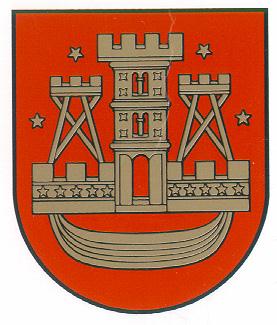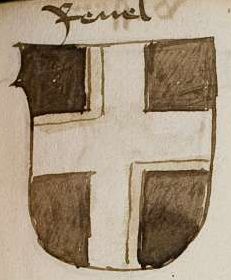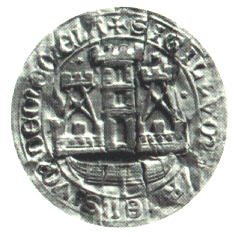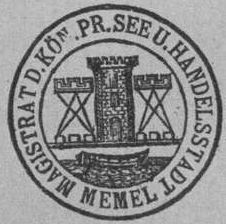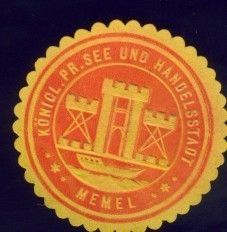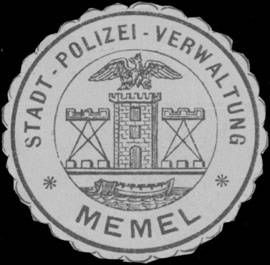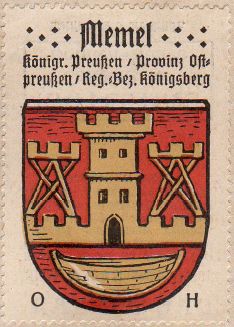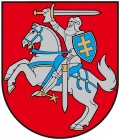Klaipėda
KLAIPĖDA
County : Klaipėda
| Lithuanian | blazon wanted |
| English | blazon wanted |
Origin/meaning
Klaipeda was first mentioned in 1252 as Memelburg. The town was named Memel by the German inhabitants, and Klaipeda by the Baltic people. Memel received city rights in 1257 or 1258, which were improved in 1475. In the early 20th century Memel became part of Lithuania and was renamed Klaipėda.
In 1514 the arms below were listed for the city, but these are probably the arms of the Teutonic order in reversed colours:
| The arms in a manuscript from 1514 |
The oldest known existing seal of Memel dates from 1619 and shows already the complicated figure as on the present arms. The arms show a main tower and two smaller side-towers all standing on a wooden boat and surrounded by stars.
| The seal of 1619 |
Originally it was thought that the arms were derived from an image of a church with three towers, but older images have disproved this idea. The arms may simply symbolise the main fortress with two guard towers. The boat could be a symbol for shipping and shipbuilding in the city.
Other explanations indicate that the city fortifications are derived from similar structures used on boats.
The stars can be simply a form of decoration, or the guiding stars used by sailors, or some other meaning.
| The municipal stamp shown in 1892 |
The seal of around 1900 |
| The seal of around 1900 |
The arms as shown in the Kaffee Hag album of 1914 |
Klaipėda restored the old Memel arms in 1969, but these were banned soon thereafter. After the new Lithuanian independence the arms were restored again on July 1, 1992.
Lithuania heraldry portal
This page is part of the Lithuania heraldry portal |
Heraldry of the World |
|
Civic heraldry:
|
Other heraldry: |
Contact and Support
Partners:
Your logo here ?
Contact us
© since 1995, Heraldry of the World, Ralf Hartemink 
Index of the site
Literature: Rimsa, 1998
